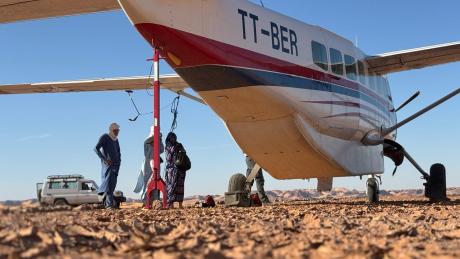
Mission Aviation Fellowship flew Dr Luke Ardill to the remote village of Gouro in northern Chad to provide diabetes training, support local clinic staff, and build relationships in a community with limited access to healthcare.
“If MAF were unable to provide these flights, we would have to drive for several days each way to get to Gouro,” said physician associate Dr Luke Ardill.
“This would reduce the time we would have available for medical assistance and education, as well as how often we are able to go.”
MAF flew Luke to Gouro, a remote village located in the far north of Chad. Surrounded by sand dunes and cliffs, Gouro is almost inaccessible by road, requiring a journey of three to four days across harsh desert terrain. The flight with MAF from the nation’s capital, N’Djamena, was completed in less than 4 hours.
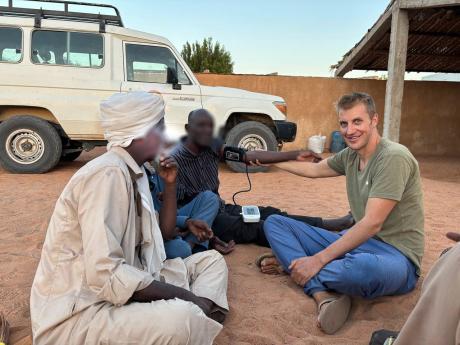
Luke flew in to build relationships in a community that was previously resistant to mission work.
“Now we’re partnering with a local NGO and colleagues who are promoting Dazaga language literacy in primary schools,” said Luke.
“Medical ministry can be a great way of sharing God’s love through relationship building and meeting physical needs.”
Though originally from the United States, Luke spent most of his childhood in Liberia, Ethiopia, and Kenya. These early life experiences shaped long-term passion for serving in under-resourced areas.
“I am passionate about using my medical training as a tool for outreach, particularly in hard-to-reach places,” he said.
“Ultimately it is about relationships and showing Christ’s love to those around you.”
If MAF were unable to provide these flights, we would have to drive for several days.
One of the main objectives of the Gouro trip was to raise awareness and provide training around diabetes, a growing concern in the region.
“Communities like Gouro often have poor access to healthy fruits and vegetables, and their diets tend to be high in carbohydrates and sugar, particularly in tea,” Luke said.
“This increases the risk of diabetes. But in remote areas, limited lab equipment means conditions like this are diagnosed late, if at all.”
There’s also limited knowledge among clinic staff about how to manage chronic diseases.
“By training staff, we create a trickle-down effect. When they grow in confidence and skill, the whole community benefits.”
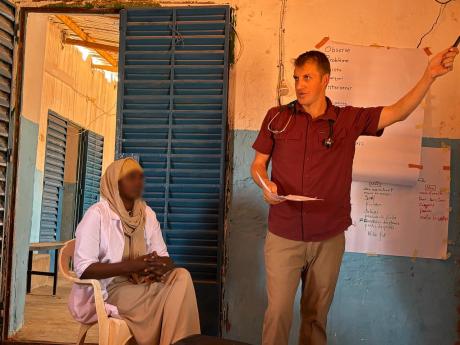
But chronic illness is not the only challenge on the ground.
“During one visit, we heard about a teenage girl who had been stung by a scorpion the night before,” Luke added. “She made it to the clinic and received antivenom, but it was too late. She died.
“I was told this isn’t rare. It highlights how much we need improved healthcare access and education in these areas.”
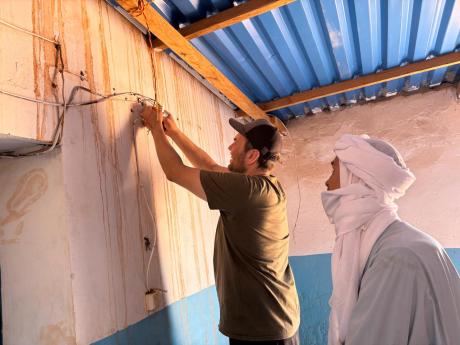
MAF’s support extended beyond just transporting personnel.
“The pilot brought electrical supplies to help diagnose a problem with the solar-powered system at the clinic,” Luke said.
“The clinic had been without power for lights and fans for two years. On a follow-up trip he was able to bring materials to help repair the system.”
Nadjitaham Koulmass, Operations Assistant for MAF in Chad, has been a vital part of supporting flights like these.
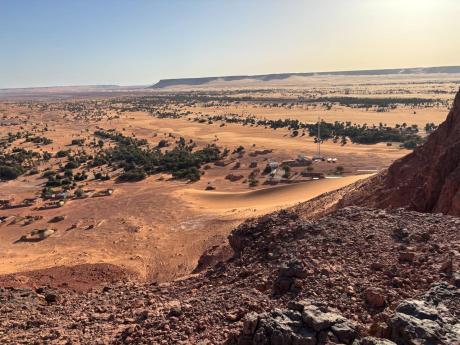
“My role is to make flight bookings for our partners and track our flights,” Koulmass said. “I also stay in touch with local authorities and partners at the destination to make sure everything is in place for the arrival.”
For Koulmass, seeing missions like the one to Gouro has been deeply meaningful especially considering its remoteness.
“Gouro is very remote and almost inaccessible by land. Imagine if MAF were not there, what would happen to the people in terms of healthcare and education?”